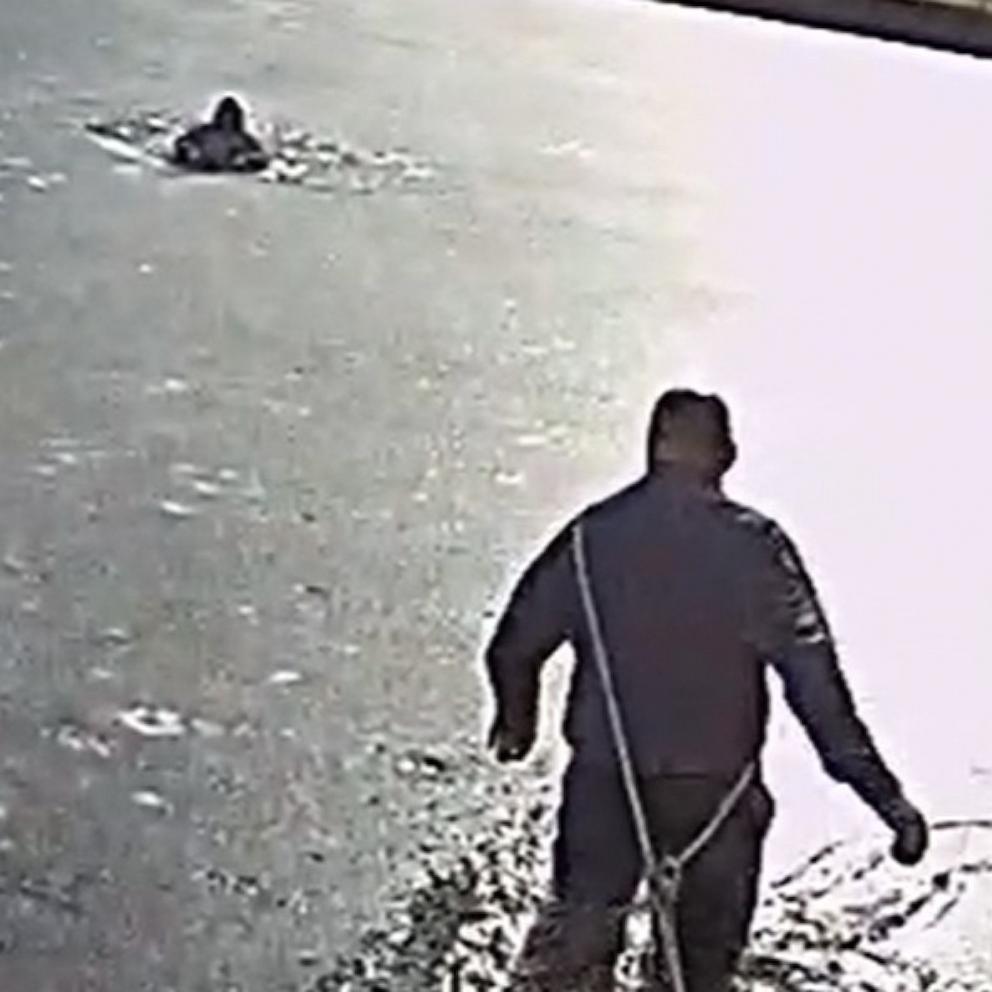Texas teen's parenthood journey reflects state of post-Roe America
Brooke Alexander of Corpus Christi, Texas, runs a tight schedule raising her twin 5-month-old girls, Olivia and Kendall.
From feedings to naptime and diaper changes, the 19-year-old told "NIGHTLINE" that her journey to motherhood wasn’t what she planned. But even though she has little time for herself, she doesn't regret being a mom.
"I think it'll be harder, but that doesn't mean that I can't handle it," Alexander said.

Alexander realhe was pregnant last fall, at the exact same time Texas began to enforce its six-week ban on abortions. At the time, the law was the most restrictive ban in the country. She quickly found out she was well past the six-week window for legal abortions.
Alexander was just 18 and said it's been a tough road. She had only been seeing her boyfriend, Billy High, for a few months and was on birth control.
"It's not that I didn't want kids. I didn't want kids at 18," she said. "I wanted to wait until I was like at least 25, 27, something like that."
"It was really heartbreaking. I really tried to not get pregnant," she added.
Alexander said she initially wanted to get an abortion and she talked with her boyfriend about it.
"I remember Billy saying, 'I would prefer that you get an abortion, but, it's ultimately your choice. And I want you to do what you want to do,'" she recalled.

In order to know if she was eligible to get an abortion under the new Texas law, Alexander had to find out how far along she was. The Corpus Christi area has no Planned Parenthood or other abortion providers and the teen was anxious about going out of state for the procedure.
"I knew it would be kind of a process to go on a plane by myself...and have this procedure done...almost alone," she said.
A family friend directed her to The Pregnancy Center of the Coastal Bend, a crisis pregnancy center, or CPC.
These facilities are not overseen or regulated by the state's health and human services department. Some abortion advocates have accused CPCs of providing misinformation about abortion procedures to pregnant women.
Nationally, there are more than 2,500 locations known as crisis pregnancy centers. CPCs outnumber abortion clinics by a 3 to 1 margin, nationwide. In Texas, that margin balloons to at least 9 to 1.
Maleeha Aziz, a community organizer with the non-profit Texas Equal Access Fund, told "NIGHTLINE" that they will say anything to stop someone from choosing abortion.

"They are not replacements for clinics," Aziz told "NIGHTLINE."
Aziz called out CPCs for what she claims is false advertising, saying their methods appeal to people looking to get an abortion.
"If you're wanting an abortion and you go to a crisis pregnancy center, that's not what you're going to get. They're not going to help you get an abortion," she said.
Jana Pinson, who runs the network of Texas CPCs called The Pregnancy Center of the Coastal Bend, told "NIGHTLINE" her centers don’t operate that way. She claims her facilities don't impose any agenda on the patients who come in.
"We've given them, actually, choice," Pinson told "NIGHTLINE." "The choice to choose life, to choose adoption. And if they choose abortion, we love them just the same."
Pinson told "NIGHTLINE" that her staff includes nine registered nurses, a nurse practitioner and two medical directors who are OB-GYNs.
The Coastal Bend website includes a disclaimer at the bottom of its page that says the centers do not offer or refer for pregnancy termination or birth control. It also says the information they give to patients is "provided as an educational service."

Pinson says the organization does receive state funding, but claims that most of the funding for her centers comes from donations by "individuals...churches and foundations."
When Alexander visited The Pregnancy Center of the Coastal Bend she found out through an ultrasound that she was carrying twins. She said her experience at the CPC wasn't too daunting.
"It was a place that seemed like they could help, and I didn't know...the whole idea behind it was to steer girls away from abortion," she said. "I felt a little steering, yeah, but nothing crazy."
Still, the revelation that she was past six months of pregnancy and carrying twins left her in shock, she said.
"I think abortion was still on my mind," Alexander said.
Ultimately, after days of consideration, she decided to go forward with the pregnancy.
Alexander added that her family was largely supportive and would have helped pay for her to go out of state for an abortion if she wanted.
“I feel like I had my choice. I don't feel like I was forced,” she said.

Since the girls were born, Alexander has stayed at home.
She acknowledged that her story, which was first reported by the Washington Post in June, is one that women across the country are now facing following the end of Roe v. Wade.
High, now her husband, signed up for the U.S. Air Force and is about to graduate from basic training. While he is gone, his family has been there to help Alexander out.
Billy Jo High, Alexander's father-in-law, told "NIGHTLINE" that he and his wife Becca have been pitching in to help her raise the babies. They say she is doing a good job.
He said he knew his son and Alexander were considering an abortion when they found out about the pregnancy, and supported them no matter what choice they made.
"They have to discuss it, but nobody can tell her what to do," High said. "I think the mom is the boss when it comes to that."

Alexander said she shares this sentiment, telling “NIGHTLINE” that every person’s life and circumstances are different, and she believes each person should be able to choose what is best for them.
"I think I just want to be a good mom, and that's kind of my life mission right now," she said.
Even though she is happy with her life right now, Alexander realizes some of her dreams are on hold, for now. But she believes she can still achieve them.
"Maybe when the girls go to school, I can start working again, or maybe I can start college even before then," she said.



